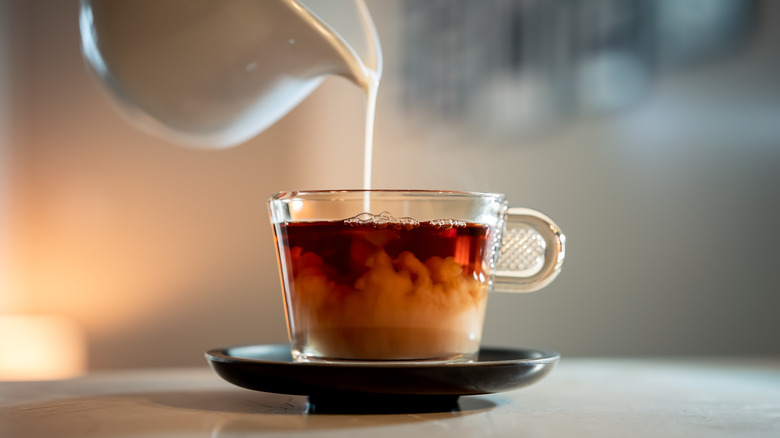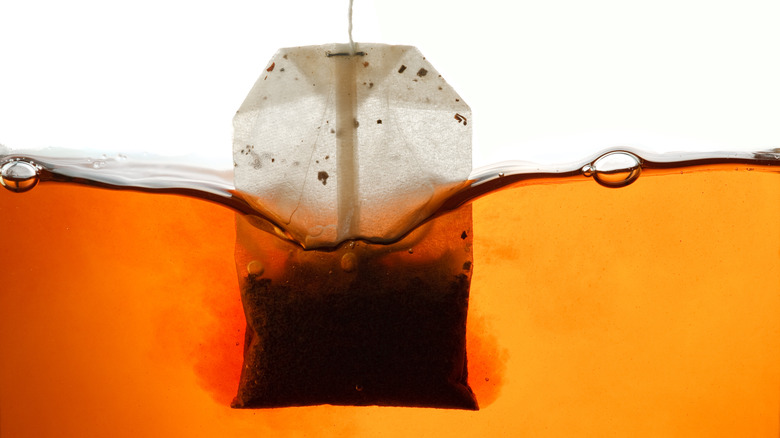The Salt-In-Tea Controversy That's Brewing A Storm On The Internet
Everybody's got an opinion when it comes to how to brew the best tea. Yet, one opinion is so divisive that the United States Embassy has gotten involved. Bryn Mawr College chemistry professor, Michelle Francl's new book, "Steeped: The Chemistry of Tea," has gone viral for one unusual hack: adding a pinch of salt to your tea.
A pinch of salt may not seem like enough to spark an all-out tea-based battle, but this is one beverage that folks are very serious about. In her book, Francl uses her knowledge of chemistry to get into the science of tea and determine what makes the perfect cup and what mistakes folks make when brewing tea. Among other details, Francl recommends adding salt to the cup. This sparked plenty of backlash on X, formerly known as Twitter. In fact, a January 24 poll by Sky News asked, "Would you add salt to your tea?" In less than 24 hours, the poll garnered nearly 2,500 votes with a whopping 86.6% saying, "no –- definitely not."
As a result of the backlash, the U.S. Embassy in London took to X to make a statement. The post read, "an American professor's recipe for the 'perfect' cup of tea has landed our special bond with the United Kingdom in hot water," adding,"we want to ensure the good people of the U.K. that the unthinkable notion of adding salt to Britain's national drink is not official United States policy. And never will be."
Folks who hate the salted tea hack may have the wrong idea
If you didn't have the United States taking a formal, public stance on the best way to make tea on your 2024 Bingo Card, you have that in common with everyone else. Yet, the pushback against Michelle Francl's salty statement was enough to elicit a response from the Embassy. If the playful nature of the U.S. Embassy's tweet wasn't already apparent, it ended with, "Let us unite in our steeped solidarity and show the world that when it comes to tea, we stand as one," adding, "The U.S. Embassy will continue to make tea in the proper way — by microwaving it." Yes –– the concept of microwaving tea is an even more notoriously controversial take than adding salt, so it seems that the Embassy is willing to stir up even more dialogue about tea.
A lot of the negative vibes surrounding the tip to add salt to your tea is likely because the idea of salty tea is highly unappealing to most people. In reality, though, the goal of putting salt in your tea isn't to make it salty; it's to combat bitterness. According to Michelle Francl, "the sodium ions in salt block the bitter receptors in our mouths." As for the pushback, the author told The Associated Press, "I kind of understood that there would hopefully be a lot of interest," adding, "I didn't know we'd wade into a diplomatic conversation with the U.S. Embassy."

